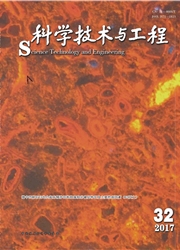

 中文摘要:
中文摘要:
目的探讨对流动人口肺结核病强化服药期患者家属实施护理干预对患者康复影响的效果,为有效开展流动人口肺结核患者护理干预提供依据。方法采用个体和集体护理干预的方法,加强家庭健康教育,指导家属多关爱病人,家庭成员相互支持。干预前后对家属进行症状自评量表(SCL-90)、肺结核病防治知识测试,对患者进行服药依从性测试。结果实施护理干预前后,家属SCL-90各因子分和结核病防治知识比较,差异均有统计学意义。患者服药依从性明显地提高(P〈0.05)。结论流动人口强化服药期护理干预改善了肺结核病患者家属的心理状况,提高了家属的认知水平和对患者的照顾技能,提高了患者的服药依从性,提高了患者的生活质量。
 英文摘要:
英文摘要:
Objective To explore the effect of nursing intervention for the family members of patients with tuberculosis in strengthening medication period of floating population and to provide theoretical guidance for effective nursing intervention to the floating population of tuberculosis patients. Methods Using individual and collective nursing intervention methods, enhancing family health education, guiding the family members more concern for the patients and mutual support between family members. Before and after the intervention, the SCL-90, the questionnaire of TB prevention and control knowledge of the family members and. The patientg medication compliance were used to measured. Results Before and after the implementation of nursing intervention, there were very significant differences in the score of the most items of SCL-90 and TB prevention and control knowledge, improved medication compliance (P〈 0.05). Conclusions Nursing intervention of strengthen medication period of floating population will improve the psychological status of the family members , raise the family members' cognitive level and skills of patient care, improve patients' medication compliance, improve quality of patients life.
 同期刊论文项目
同期刊论文项目
 同项目期刊论文
同项目期刊论文
 期刊信息
期刊信息
